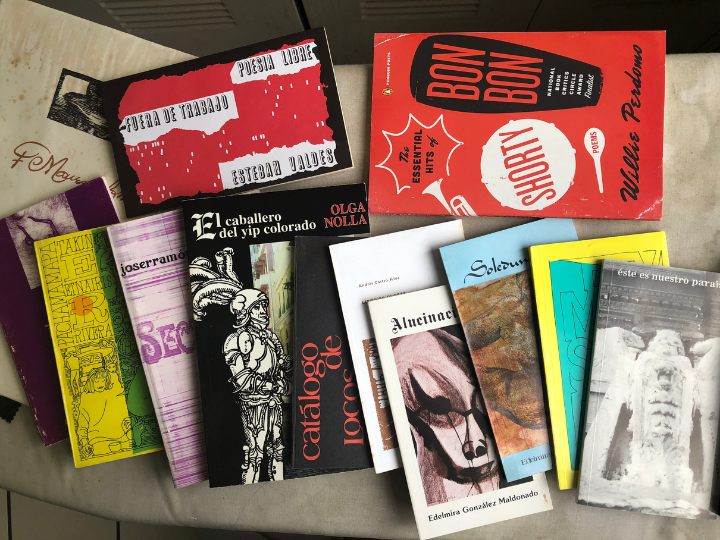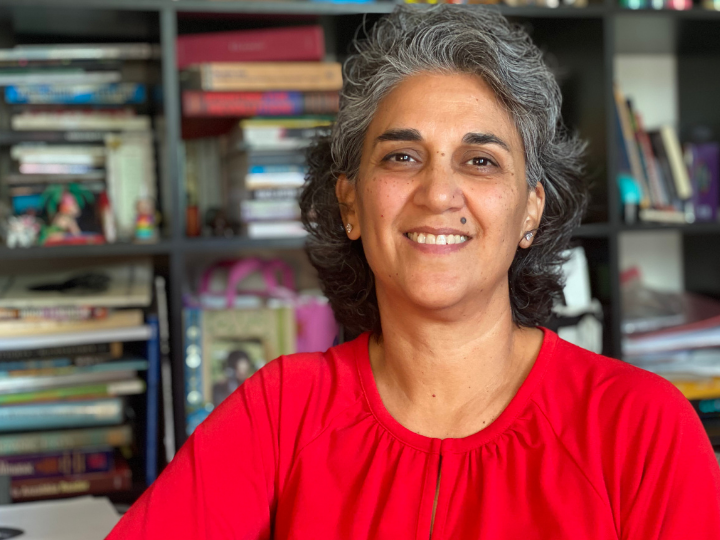

The University of Houston has received a nearly $1.35 million grant from The Andrew W. Mellon Foundation to establish a free, open-access digital portal for anyone to learn about or teach Puerto Rican literature.
“El proyecto de la literatura puertorriqueña/The Puerto Rican Literature Project” (PRLP) includes a database in Spanish and English of approximately 50,000 assets (photographs, manuscripts, poems, videos and archival materials), a digital archive and additional resources that document the material existence and experiences of key Puerto Rican poets in the archipelago and U.S. diaspora. The data collected dates back to 1917, when President Woodrow Wilson enacted the Jones-Shafroth Act extending U.S. citizenship to all residents of Puerto Rico, to the present.
Gabriela Baeza Ventura, executive editor of Arte Público Press (APP) and co-founder of the U.S. Latino Digital Humanities program at UH, will lead the project in collaboration with a collective, or Colectivo, of prominent scholars, writers and translators from Puerto Rico and the U.S. diaspora composed of Raquel Salas Rivera, Ricardo Maldonado, Claire Jiménez and Enrique Olivares Pesante.
The Colectivo’s primary goal is to make Puerto Rican literature widely accessible through the gathering, transcription and translation of poetic materials that until now have been physically archived in different collections, or not archived at all.
“The Colectivo chose the Jones-Shafroth Act as a starting point because it brings into relief the markers and intricacies of literary traditions shaped by linguistic colonialism and the limited circulation of texts,” explained Baeza Ventura. “The archival mission is anchored in a deep sensitivity to Puerto Rican linguistic richness, which stands in contrast to the violence of monolingualism that reflects forced histories of migration within the archipelago and abroad.”
By bringing more public attention to a body of writing that is extraordinary in scope, PRLP will consolidate, reflect and respond to grass-roots community exchanges by Puerto Rican poets across all regions, as well as provide a means to make these voices visible to poets and reading communities at large.
“As a Hispanic-Serving Institution, the University of Houston is committed to honoring the achievements of these incredible writers,” said Paula Myrick Short, senior vice president for academic affairs and provost. “UH will serve as a focal point for students and scholars to learn about those who have made an impact on Puerto Rico’s rich history through their work.”
In 2019, The Mellon Foundation awarded UH $750,000 to launch the first-of-its-kind U.S. Latino Digital Humanities Program, which gives scholars expanded access to a vast collection of written materials produced by Latinos and archived by the Recovering the U.S. Hispanic Literary Heritage (“Recovery”) program and Arte Público Press, the oldest and largest publisher of Hispanic Literature in the nation. Baeza Ventura and Carolina Villarroel, Brown Foundation Director of Research, oversee the digital humanities grant.
“Baeza Ventura and Villaroel believe the ‘Puerto Rican Literature Project’ is an important contribution to Latino literature in the U.S. and abroad as well as a great example of the collaborations fostered from their work in U.S. Latino Digital Humanities since the creation of their program,” said Nicolás Kanellos, Arte Público Press founder and director.
In addition, PRLP will serve as a great resource for Latin American, Caribbean and Latino Studies scholars. Not only does Puerto Rico share a similar history of colonization, slavery and military intervention as the rest of the Caribbean and Latin America, but it also produces a literature that documents the effects of that colonialism and offers decolonial counter-traditions. By creating a bilingual resource, the archive will open the door to the formation of essential Trans-Caribbean connections.
“This generous grant and continued support from The Andrew W. Mellon Foundation highlights Arte Público Press’s important role in ensuring broader attention and mainstream accessibility to Hispanic literature,” said Eloise Brice, vice president for University Advancement.